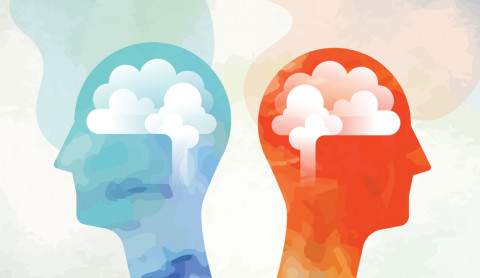
Dan Carney
One of the most well-known psychological biases is the Dunning-Kruger effect: the tendency for individuals less skilled or knowledgeable in a particular area to overestimate their own performance. Now, a team of researchers from Miami University, Ohio, have offered the most robust evidence yet that this may apply to knowledge about autism — that what people think they know about the condition may not be that closely related to what they actually know.
Writing in the March issue of Research in Autism Spectrum Disorders, the authors — led by Camilla McMahon — measured perceived and actual autism knowledge in a sample of 331 members of the US public, with a range of incomes and educational backgrounds.
Participants’ perception of their own knowledge was assessed using the specially created Perceived Autism Knowledge Questionnaire, consisting of six statements regarding symptoms (e.g. “I can recognise the signs and symptoms of autism”). Participants were required to respond to each on a scale ranging from “strongly agree” to “strongly disagree”.
Actual knowledge was measured with the Autism Symptomatology Knowledge Assessment, a list of 25 symptoms — ten specific to autism (e.g. “failure to initiate or respond to social interactions”), and fifteen to other conditions (e.g. “depressed mood”) — each requiring a yes/no response regarding whether it can be used to make an autism diagnosis. Lastly, participants estimated both their own score, and their performance in comparison with others, on the actual knowledge measure.
Strikingly, no correlation was found between performance on the perceived and actual autism knowledge measures: people’s beliefs about their own knowledge were not related to their actual knowledge levels. In addition, participants with the highest actual knowledge levels were more likely to underestimate both their own scores on that measure, and their performance in comparison with others. The opposite pattern was found for those with the lowest actual knowledge, who tended to overestimate both their scores and their comparative performance.
The manner of the separation between perceived and actual knowledge suggests that autism knowledge may be prey to the Dunning-Kruger effect, which could have real-world implications. For instance, lower-knowledge individuals working with autistic people may not only provide inferior support due to lesser knowledge, but also — due to higher self-confidence — fail to correct themselves or try to improve. According to McMahon and her team, future research should examine specific professional groups (e.g. paediatricians or teachers), where a combination of high perceived and low actual knowledge may lead to errors in areas such as diagnosis and intervention.
And if more knowledgeable individuals are underestimating both their own absolute and relative knowledge of autism, this suggests that they may be overestimating the knowledge of others. This could also lead to inferior provision in professional contexts, as it may cause knowledgeable individuals to defer to others who do not share their level of expertise
The results also have implications for autism researchers: McMahon and colleagues point out that studies of autism awareness have often treated measures of perceived and actual knowledge interchangeably, when attempting to assess the latter. They recommend that researchers should bear the distinction in mind in future, and consider more carefully which of the two they wish to examine.
One limitation of the study, which the authors acknowledge, was that the measures were administered as part of a larger investigation that required participants to read a brief educational statement on autism and then answer questions on their own judgements of, and receptivity to, individuals with the condition. This process may have temporarily inflated knowledge levels and affected responses on the measures.
Overall, however, this study is the most detailed investigation to date of the Dunning-Kruger effect in autism, and provides an intriguing platform for further work. It suggests that initiatives to increase autism knowledge may need to be targeted at those who do not think of themselves as needing support, and should also aim to enhance people’s awareness of their own knowledge level.
Understanding the way that people perceive their knowledge relative to others could also inform situations in which those from different professional fields (e.g. teachers, social workers or educational psychologists) are required to reach joint decisions on provision for autistic people. This may enable better collaborative judgements, made by professionals able to gauge their own expertise level – and that of those around them – more accurately.
– Perceived versus actual autism knowledge in the general population
Post written for BPS Research Digest by Dr. Dan Carney. Dan is a UK academic psychologist specialising in developmental disorders. He undertook his post-doctoral research fellowship at London South Bank University, finishing in 2013. His published work to date has examined cognition, memory, and inner speech processes in Williams syndrome and Down syndrome, as well as savant skills in autism.
At Research Digest we’re proud to showcase the expertise and writing talent of our community. Click here for more about our guest posts.